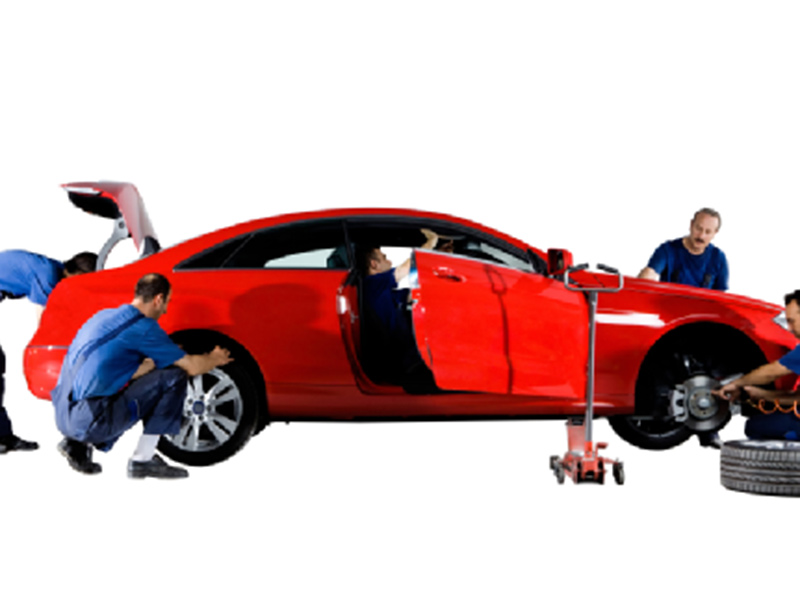All Categories
Featured

Every cars and truck make and version features its own collection of upkeep demands to guarantee it stays running efficiently for several years. Whether you're driving a dependable sedan, a sturdy SUV, or a high-performance cars, complying with the correct maintenance timetable is essential to avoid break downs and expensive fixings. In this write-up, we will share maintenance advice customized to different prominent automobile makes and versions, providing you with helpful ideas on exactly how to best look after your car.
- Ford Vehicles: Remain On Top of Fluid Checks and Tire Treatment. Ford automobiles, consisting of the Ford F-150, Traveler, and Fusion, are made for resilience and efficiency. To keep these cars in peak problem, routine fluid checks are important. Engine oil should be altered every 5,000 to 7,500 miles, and the coolant must be purged and replaced every 30,000 miles or as recommended in your proprietor's manual. Pay attention to the brake liquid and power steering liquid, also, which can degrade in time. Tire upkeep is another essential element of keeping your Ford in top shape. On a regular basis examine tire stress and revolve your tires every 6,000 to 8,000 miles to guarantee even expand and put on tire life.

- Toyota Cars: Timing Belt and Brake System Upkeep. Toyota designs, such as the Camry, RAV4, and Highlander, are recognized for their reliability and long life. To maintain your Toyota, beginning by examining the timing belt. In designs with a timing belt (like the Toyota Corolla), it should be replaced every 60,000 to 100,000 miles to prevent costly engine damages. The brake system also requires normal upkeep, particularly on older designs. Ensure that the brake pads are looked for wear, and brake fluid is changed every 2 years. Toyota lorries also require attention to their air filters; changing the engine air filter and cabin air filter on a regular basis will certainly help maintain engine performance and air top quality inside the cabin.
- Honda Automobiles: Watch on Transmission Liquid and Suspension. Unlike some other vehicles, Honda recommends transforming transmission fluid every 30,000 miles to keep the smooth changing efficiency of the transmission. Inspect the struts and shock absorbers for leaks or damage, as these parts are important to maintaining trip top quality and lorry stability.
- Chevrolet Automobiles: Focus on the Exhaust System and Battery Wellness. Chevrolet versions like the Chevy Silverado, Malibu, and Equinox are designed to be tough, yet they need normal care to preserve their efficiency. One of the most crucial areas to check is the exhaust system, particularly for Chevy trucks and bigger vehicles that bring heavy loads. Additionally, the battery should be examined routinely, especially in models with start-stop technology.

- BMW Autos: Timing Chain, Oil Adjustments, and Air Conditioning System. BMW is known for its high-end vehicles, consisting of the BMW 3 Collection, X5, and 7 Series. These high-performance autos require unique focus to keep their engines running effectively. Engine oil ought to be changed every 7,500 miles or as recommended by the producer, utilizing high-quality artificial oil. BMW designs likewise depend heavily on their air conditioning systems, and normal assessments of the radiator and coolant degrees are necessary to prevent overheating, particularly in turbocharged engines. Furthermore, several BMWs make use of a timing chain rather than a belt, which generally lasts longer but still requires to be examined frequently for wear.
- Hyundai Vehicles: Liquid Changes and Tire Maintenance. Hyundai cars, such as the Elantra, Sonata, and Santa Fe, are understood for their price and integrity. Routine fluid changes are vital for maintaining the engine running smoothly. Change the engine oil every 5,000 to 7,500 miles to protect against engine wear. Transmission liquid must likewise be changed every 30,000 to 60,000 miles, depending upon the design. Tire care is particularly essential for Hyundai cars, as proper tire inflation and routine rotations help preserve fuel performance and improve safety and security. Hyundai cars additionally gain from frequent checks of the brake system and battery health and wellness, which ensures both safety and security and efficiency.
- Mazda Cars: Timing Chain and Brake Maintenance. Timing chains in Mazda engines are commonly more durable than belts yet still need to be kept an eye on for wear, especially in high-mileage cars. Mazda proprietors need to inspect the brake pads and brake fluid occasionally, especially if the vehicle is driven in uneven locations or made use of for towing.
Final thought. Appropriate upkeep is important for the longevity and efficiency of any kind of lorry. From fluid modifications to brake examinations, dealing with particular maintenance tasks customized to your car's brand will certainly assist you avoid costly repairs and maximize the life of your automobile.
Latest Posts
Discover Limited-Time Auto Repair Specials in Chicago at Montclare Auto Repair
Published May 27, 25
1 min read
Secure Your Home with Top Quality Residential Roof Covering
Published May 26, 25
1 min read
Enhance Your Home with Expenses Door Solution
Published May 23, 25
1 min read